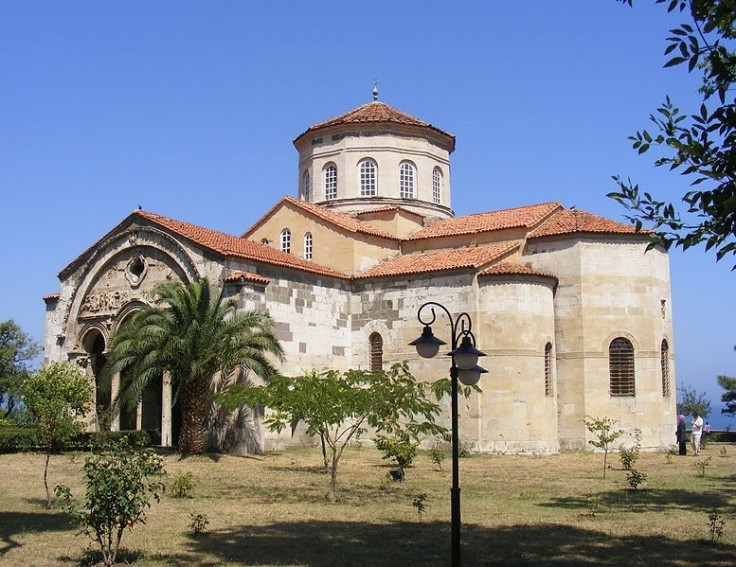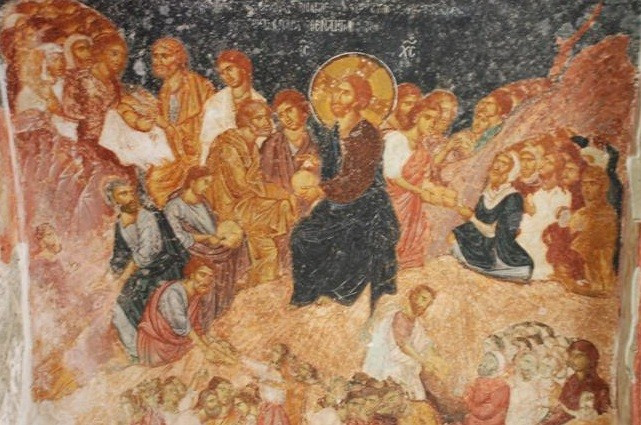Trabzon's Hagia Sofia: How Converting Church to Mosque Hurts Both Religions [BLOG]
13th-century place of worship has been turned into a symbol of religious intolerance by Turkish government, argues Uzay Bulut

The Hagia Sophia Museum, one of only a few dozen Byzantine sites still extant in Turkey, is a former Greek Orthodox church in the Black Sea city of Trabzon. Dating back to the 13th century, when Trabzon was the capital of the empire of Trebizond, the Hagia Sophia constitutes one of the most important monuments of late Byzantine architecture.
After the Ottoman Empire took control of the city, it was converted into a mosque and its frescos were covered in whitewash. In 1964 it was restored and put into use as a museum until Turkey's religious and nationalist right decided to convert it into a mosque again.
In 2012, vice-prime minister Bülent Arınç announced that Trabzon's Hagia Sophia would be opened for prayer as a mosque. The Ministry of Culture and Tourism, he said, had "occupied" the building for five years without the permission of the General Directorate of Foundations (the government body responsible for antiquities) and the Hagia Sophia could not be used as anything other than as a place of worship.
An international campaign was launched to ask the authorities to reconsider. The campaign was a joint effort of the Facebook group 'Save the Ottoman monuments in Greece' and two Greek NGOs, Cool Culture and Rhodes International Culture and Heritage Society.
"Respect is essential - respect for each other's religions and each other's heritage," they said. "That is the only way to preserve both the Ottoman heritage in Greece and the Christian heritage in Turkey. This means that we would never propose or support the conversion of any [former] mosque in Greece to a church. It would be counter-productive and strain the cultural relations and friendship between Greeks and Turks."

But Turkey's ruling Justice and Development Party (AKP) have a different view.
"The population of this city consists of Muslims. If the majority are Muslims, the places of worship need to be mosques. Suppose that the majority of this city was Christians or Jews, would they keep this place as a museum?" Adnan Ertem, the General Director of Foundations, said as Hagia Sophia reopened as a mosque. Sadık Albayrak, a relative of the prime minister Erdoğan, also attended the opening during which prayers were performed.
An imam has been hired, the Christian frescoes have been covered with curtains and the bell dome has been turned into a minaret from where the azan is called by the muezzin.
"To destroy the properties of a museum like Hagia Sophia, which could be a candidate for world cultural heritage, is a crime against universal culture and humanity", said the Association of Archeologists in Turkey.
Even though the constitution asserts that Turkey is secular, the Directorate of Religious Affairs in Turkey (the Diyanet) has the second-largest budget of any official institution after the military.
But the Diyanet has not granted any funds for caring for the country's churches or synagogues.
The Islamist agenda of the AKP government is totally in contradiction with the universal values of secular democracy. Their understanding of the freedom of belief is restricted to the freedom of Sunni Muslims only.
Uzay Bulut is a freelance journalist based in Ankara
© Copyright IBTimes 2025. All rights reserved.





















